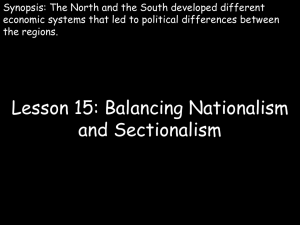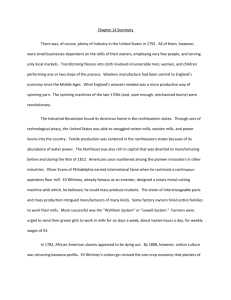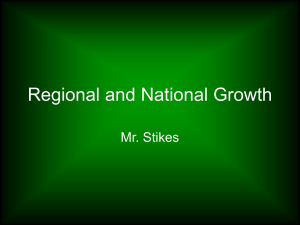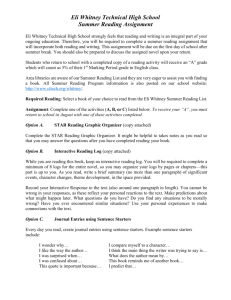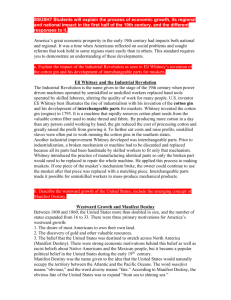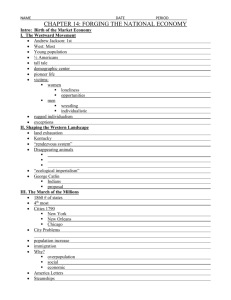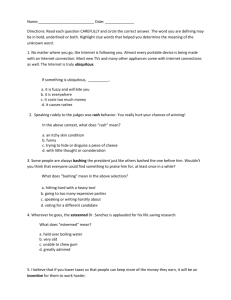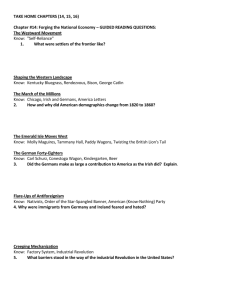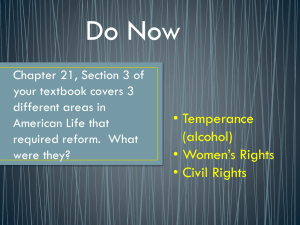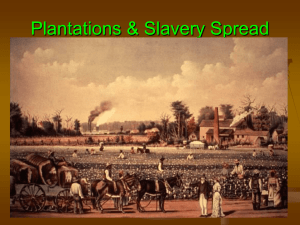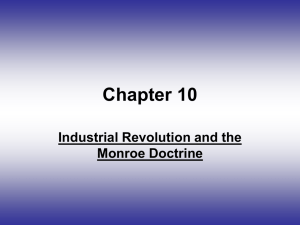19th Century US History Matching Worksheet
advertisement
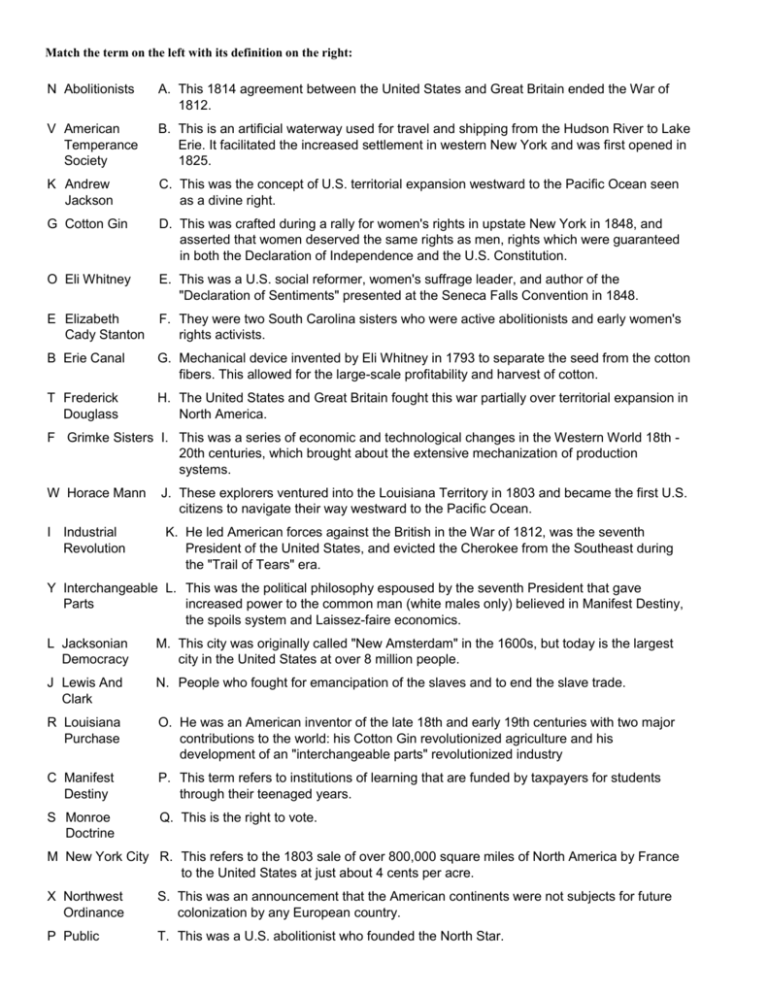
Match the term on the left with its definition on the right: N Abolitionists A. This 1814 agreement between the United States and Great Britain ended the War of 1812. V American Temperance Society B. This is an artificial waterway used for travel and shipping from the Hudson River to Lake Erie. It facilitated the increased settlement in western New York and was first opened in 1825. K Andrew Jackson C. This was the concept of U.S. territorial expansion westward to the Pacific Ocean seen as a divine right. G Cotton Gin D. This was crafted during a rally for women's rights in upstate New York in 1848, and asserted that women deserved the same rights as men, rights which were guaranteed in both the Declaration of Independence and the U.S. Constitution. O Eli Whitney E. This was a U.S. social reformer, women's suffrage leader, and author of the "Declaration of Sentiments" presented at the Seneca Falls Convention in 1848. E Elizabeth Cady Stanton F. They were two South Carolina sisters who were active abolitionists and early women's rights activists. B Erie Canal G. Mechanical device invented by Eli Whitney in 1793 to separate the seed from the cotton fibers. This allowed for the large-scale profitability and harvest of cotton. T Frederick Douglass H. The United States and Great Britain fought this war partially over territorial expansion in North America. F Grimke Sisters I. This was a series of economic and technological changes in the Western World 18th 20th centuries, which brought about the extensive mechanization of production systems. W Horace Mann I Industrial Revolution J. These explorers ventured into the Louisiana Territory in 1803 and became the first U.S. citizens to navigate their way westward to the Pacific Ocean. K. He led American forces against the British in the War of 1812, was the seventh President of the United States, and evicted the Cherokee from the Southeast during the "Trail of Tears" era. Y Interchangeable L. This was the political philosophy espoused by the seventh President that gave Parts increased power to the common man (white males only) believed in Manifest Destiny, the spoils system and Laissez-faire economics. L Jacksonian Democracy M. This city was originally called "New Amsterdam" in the 1600s, but today is the largest city in the United States at over 8 million people. J Lewis And Clark N. People who fought for emancipation of the slaves and to end the slave trade. R Louisiana Purchase O. He was an American inventor of the late 18th and early 19th centuries with two major contributions to the world: his Cotton Gin revolutionized agriculture and his development of an "interchangeable parts" revolutionized industry C Manifest Destiny P. This term refers to institutions of learning that are funded by taxpayers for students through their teenaged years. S Monroe Doctrine Q. This is the right to vote. M New York City R. This refers to the 1803 sale of over 800,000 square miles of North America by France to the United States at just about 4 cents per acre. X Northwest Ordinance S. This was an announcement that the American continents were not subjects for future colonization by any European country. P Public T. This was a U.S. abolitionist who founded the North Star. Education D Seneca Falls Declaration U. This was a belief that alcohol consumption should be controlled through moderation and abstinence. Q Suffrage V. This group was formed in 1826, advocating not only temperance but abolition and women's suffrage, as well. U Temperance W. He was a 19th century American education reformer, championing the state support of "public" schools and pushing for legal, mandatory school attendance. A Treaty Of Ghent X. This was an Act of Continental Congress which initially organized the first United States territory and was to be the basis for governing how the United States would expand westward. H War Of 1812 Y. This was an innovation of Eli Whitney in which all of the pieces of a product are made to the same specifications.

